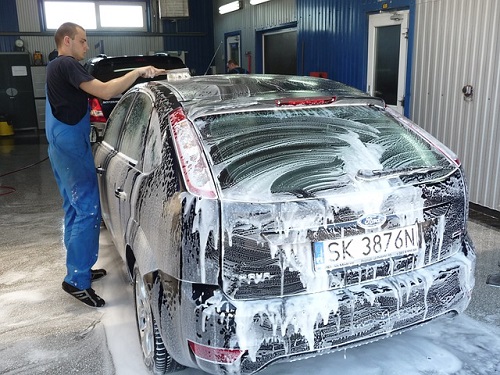Do you own your car? If so, you’ll understand that, as time goes on, the value of your pride and joy drops. Depreciation is something that no vehicle owner can avoid, regardless of what they have. So, it doesn’t matter if you buy a Ford Focus or a Ferrari 458 Italia. You’ll still lose some money on your car!
There is some light at the end of the tunnel, so to speak. The good news is that you can control the speed at which your vehicles loses value over time. So, what are the secrets of doing so? Follow these expert tips and you’ll have the best possible resale value for your car when you decide to sell.
Do Less Than Average Mileage
You might not think it, but the amount of miles you do in your car will affect its resale value. That’s despite the fact you might have an exemplary service history for it. The amount of “average” miles varies depending on who you talk to about the subject.
Most people agree that the average mileage they do in their vehicles is around 1,000 per month or, 12,000 miles per year.
If you only do local journeys in your town, it’s likely your annual mileage will be less than that. Of course, if you drive across the country for work, your car will have spaceship mileage.
If the latter applies to you, it might be worth leasing a car for work and owning a vehicle for pleasure. That way, the car you “care” about will be worth more because of its low miles. And the rented car’s depreciation won’t be your problem after three years of use.
Think About Where You Park
Cosmetic damage will affect the value of your car if you wish to sell it. An immaculate example will fetch a higher price than one with dents and scrapes on every panel.
Most of the time, your car will have bodywork damage because of where it gets parked.
The sad truth about parking garages and lots is that other people may damage your car by accident. Some might not even realize it and drive off, leaving you with a bodyshop repair bill. Others might do so out of jealousy because you drive a “nice car”.
That’s why it is important you think about where you park your pride and joy if you’re to protect the paint and body. Let’s say that you’re heading down to your local grocery store. Make sure you park near the exit, and away from any shopping cart bays.
And don’t forget to avoid going there on a windy day; a stray shopping cart might head straight for your car.

Image from Pixabay.
Keep Your Car Clean
Let’s say you come across two identical cars. They have the same mechanical condition and the same mileage. They were also built at the same time and have similar features.
The only difference is one car resembles a trash car while the other is immaculate. Which vehicle do you think will sell for more money?
The clean one, of course! That’s why it makes sense to keep your pride and joy clean at all times. Aside from the higher resale value, there are other benefits you can enjoy, too:
● Less chance of falling ill because of bacteria or germs;
● Your car will smell good and look amazing; and
● It’ll be quicker and easier to keep your vehicle clean the more often you give it a “wash and vac”.
Keep Your Car in Excellent Mechanical Condition
The best way to achieve the above goal is by sticking to the manufacturer’s service schedules.
The time between each service will vary depending on which car you own and how many miles it has done. Your local dealer can tell you when you need to have your car serviced next.
To keep depreciation at bay, your vehicle must be in an excellent mechanical condition. When you come to value your car, one of the factors that affect price is its service history. If it got maintained as it should, with no expense spared, it would command a higher than average price.
Don’t Add Any Aftermarket Parts
The thing about car valuations is that they get affected by modifications. I’m talking about things like lowered suspension, bigger wheels and louder exhaust systems.
By all means, add such parts when you drive the car. But, if you want to get the best price when selling your pride and joy, put it all back to standard.
